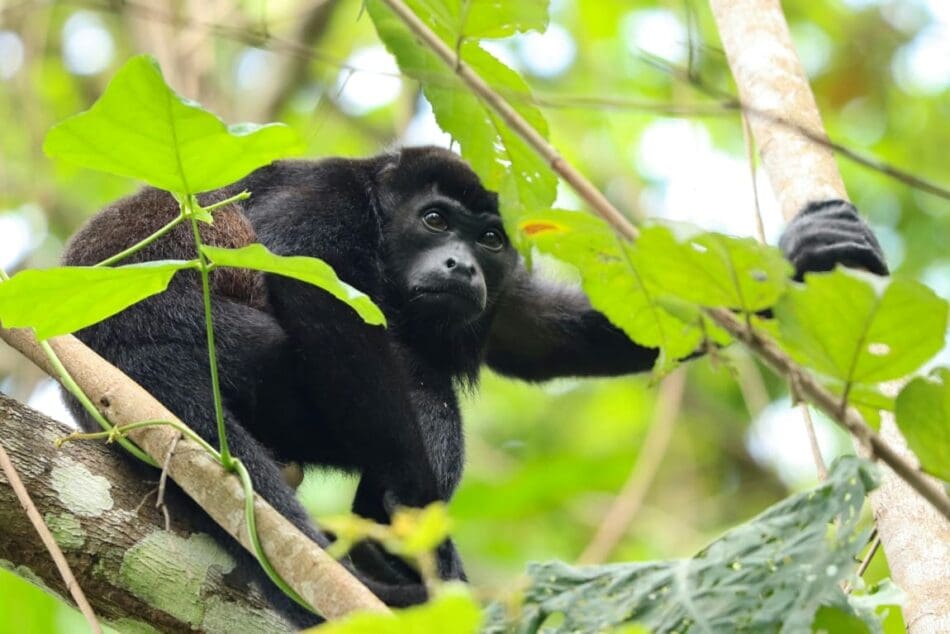Mexico City, Mexico (AFP) – Howler monkeys are dropping dead in Mexico and authorities said Monday that they were investigating whether extreme heat was killing the endangered species.
According to the environment ministry, causes under consideration include “heat stroke, dehydration, malnutrition or fumigation of crops with pesticides.”
It said studies would be carried out to rule out a virus or disease.
Temperatures of up to 45 degrees Celsius (113 degrees Fahrenheit) have been recorded in the southern states of Chiapas and Tabasco, where the deaths have been reported.
While the government did not say how many primates had perished, Tabasco-based wildlife preservation group COBIUS reported “mass deaths.”
“It’s very likely due to climatic reasons but we cannot rule out other important causes,” it said in a statement.
“If you see monkeys that are weak and apparently suffering from heat or dehydration, please try to hoist a bucket of water by rope for them to drink,” it added.
President Andres Manuel Lopez Obrador, who hails from Tabasco, also pointed to extreme heat as the likely cause.
“The heat is very strong. Since I’ve been visiting these states I’ve never felt it as much as I do now,” he said at his regular news conference.
Authorities and conservationists were carrying out patrols to provide water and food, mainly fruits, to help monkeys stay hydrated, the Tabasco civil protection institute said.
jg-dr/bjt
© Agence France-Presse
Featured image: Mantled Howler Monkey Sitting on a Tree Branch. Credit: Lyn Ryan | Pexels




